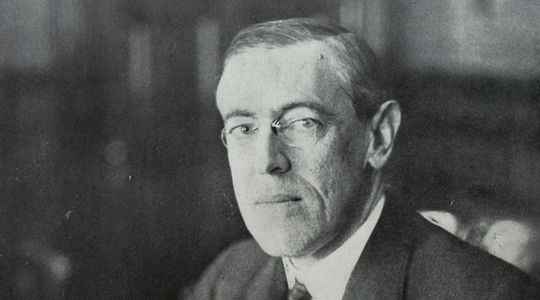It was a failure that changed the world. Author of the famous “fourteen points” and father of the League of Nations supposed to lead to a lasting peace, Woodrow Wilson scuttled his work in 1919. Refusing any compromise in the face of the Republican opposition, the American president did not arrive, in Congress, to ratify the Treaty of Versailles. How to understand this self-destruction? Many observers have highlighted the shaky health of the Nobel Peace Prize winner, victim of a vascular accident. But in Has the president gone mad?Patrick Weil sheds original light.
In 2015, browsing through the Yale University library, the historian unearthed an unpublished manuscript by Freud, co-written with the diplomat William C. Bullitt. Consider a vitriolic psychological portrait of Wilson. Behind the messianic behavior and the destructive impulses of the democratic leader, Freud and Bullitt believed they detected a repressed homosexuality and an identification with Jesus Christ…
The journey of the flamboyant Bullitt
If we can remain skeptical about this wild psychoanalysis, the great merit of Patrick Weil is to reconstruct the gears that led from the First World War to the Cold War, through the journey of a key character, the flamboyant William Bullitt. This young idealist is part of the American delegation to the Paris Peace Conference, but he is disappointed with Wilson.
Convinced from that moment that Franco-German reconciliation was the basis for peace in Europe, he also saw early on the risk of part of the world falling under the Soviet yoke, prophesying in September 1939: “In my eyes, Mrs. “Hitler has already completely lost the war. I imagine he thinks he’s going to finish France and England off quickly enough to turn on the Bolshoi and give them the final blow. But it won’t be that way, the The Soviets will grow like a cancer and push all the way to Berlin. After that, the Great Khan Stalin will have to be finished.”
Bullitt knows his stuff. After establishing diplomatic relations with Lenin in 1919, he became, in 1933, the first American ambassador to Soviet Russia. In 1944, he joined the first French army as a translator and adviser to De Lattre de Tassigny. In the post-war period, Bullitt tried to stem communism in Vietnam and China, before supporting Nixon in 1960.
Keynes contradicts
Depressed, Bullitt ventured on the couch of Berggasse, in Vienna, in 1926. Four years later, Freud and he decided to write with four hands on Wilson, while the consequences of the failure of 1919 were being made. feel in Europe. But Bullitt rejects the publication because of his closeness to Franklin Roosevelt. In 1966, feeling his end near, he finally decided to publish the book, but in a very redacted version. The Freudian references to masturbation and especially to the homosexual inclinations of the Presbyterian Wilson, who read the Bible every day, are redacted. Bullitt has abandoned the socialism of his youth and now believes that Christianity represents the best ferment against communism.
With his historical-psychoanalytical saga, Patrick Weil also pinpoints John Maynard Keynes. In The Economic Consequences of Peace (1919), the economist imposed the idea that France, out of greed, would have overwhelmed Germany, obscuring the role of England. Weil recalls that it is the American non-ratification which represents the original sin, at a time when Clemenceau was ready to show flexibility. Let’s do some alternative history: if France had enjoyed Atlantic protection, the victors would undoubtedly have been much more conciliatory on German reparations. And even if Hitler had come to power, the United States would have intervened much sooner against the Nazis by being bound by a Franco-Anglo-American treaty of assistance.
Through the Wilson case, Patrick Weil also questions the foundations of the presidential regime. How do you prevent a leader from leading his country to disaster if he, for one reason or another, loses his mind? The question of the mental health of our powerful remains more relevant than ever…
Has the president gone mad?, by Patrick Weil. Grasset, 480 pages, €25.
